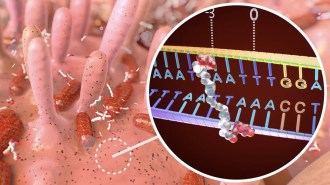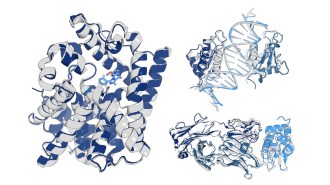An Alzheimer’s disease drug could protect against the deadly effects of two nerve agents, researchers report.
Exposure to organophosphorus compounds, including the nerve agents sarin and soman, can cause seizures, breathing difficulty, and death. Edson X. Albuquerque of the University of Maryland School of Medicine in Baltimore and his colleagues used guinea pigs to test the drug galantamine—approved for patients with mild-to-moderate Alzheimer’s disease—as an antidote to organophosphorus exposure. The drug and the two nerve agents affect the same enzyme.
The researchers treated some of the animals with galantamine, exposed them to sarin or soman, and then gave them atropine, a drug that’s used to reduce some symptoms of organophosphorus exposure. Other animals received atropine only.
All the guinea pigs that received galantamine and atropine were alive 24 hours later, while only 11 percent of those treated with just atropine survived.
The researchers also investigated the window of time in which galantamine could be administered and remain effective. They report in an upcoming Proceedings of the National Academy of Sciences that all animals survived when treated with galantamine up to 3 hours before or 5 minutes after exposure to soman.
The protective doses of galantamine against organophosphorus poisoning are similar to those already used for Alzheimer’s treatment, notes Albuquerque.






